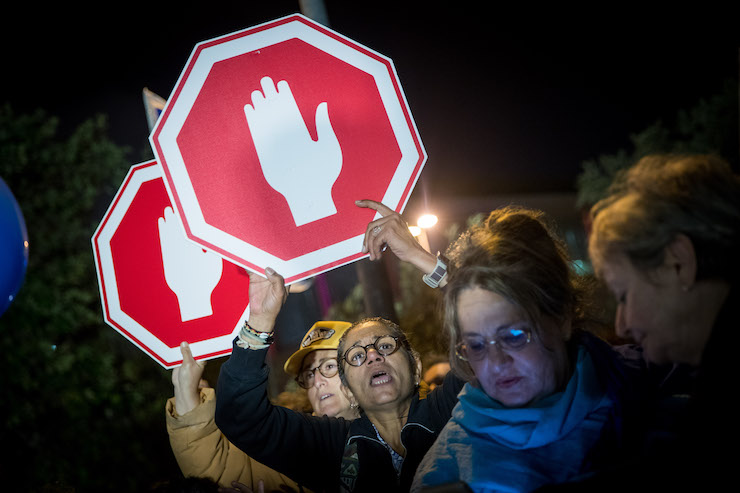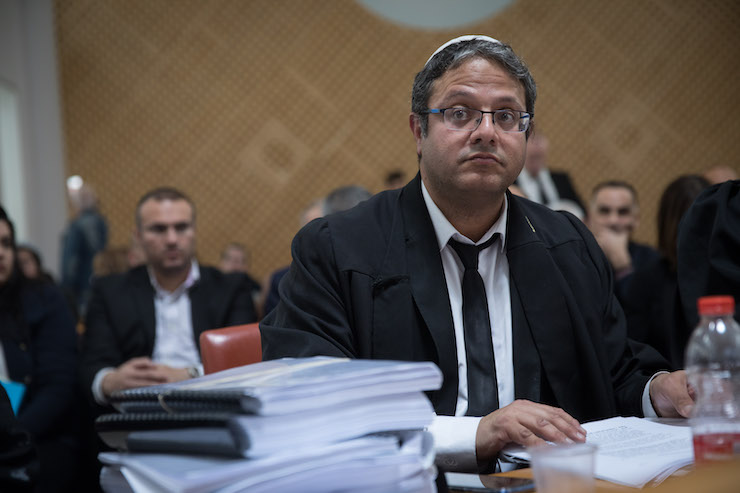By propping up a legal system that does not protect the most vulnerable and powerless, the justices of Israel’s High Court have planted the seeds of its own destruction.
By Michael Sfard

It is widely expected that the next Netanyahu government will set its sights on hollowing out the judiciary in Israel. According to countless reports and statements by Netanyahu and other senior politicians, the fifth Netanyahu government plans to advance legislation to strip the High Court of Justice of its power to revoke unconstitutional laws and strip it of the power to scrutinize administrative acts, government policies and executive decisions.
Netanyahu and his cronies want an obedient court. They want a court that will uphold their obscene whims and rubber stamp anything that musters a simple parliamentary majority.
Netanyahu’s corrupt, personal self-interest of avoiding being put on trial, combined with the annexationist-apartheid agenda of his allies in the nationalist-Kahanist camp, have made that vision possible.
It is difficult to overstate just how deep of a change Israel’s system of governance will undergo if the Knesset gives itself the power to effectively veto High Court decisions, or if it strips the court of its powers of oversight. The ruling parliamentary majority and the government in Israel already have powers that are unmatched in the democratic world; there is virtually no system of checks and balances in place. The realization of that unchecked power naturally harms interests — and sometimes the rights — of individuals or minorities and disadvantaged group.
In order to grasp the significance and prevalence of judicial review over government bodies, one need only recall how Netanyahu recently ran to the High Court (oh, the irony) to complain that State Comptroller’s Office would not permit him to fund his legal defense in pending corruption cases with donations from a wealthy patron. That Netanyahu himself sought relief from the courts from what he believed to be an unjust decision against him demonstrates perfectly how central a feature judicial review is for a modern system based on the concept of rule of law that respects individual rights.
Thus the desire to protect the rule of law and minority rights, by protecting Israel’s Supreme Court, is only natural.

And yet, the truth must be said: Israel’s High Court played a role in nurturing the weeds now threatening to cut off the locks of its hair. Yes, for many years the High Court had an affair with its own Delilah — the settlement movement and occupation, which planted the seeds of apartheid. Its justices were the ones who enabled the establishment of settlements, land expropriation, and the exploitation of natural resources in occupied territories for the benefit of the occupier and in clear violation of prohibitions set in international law.
It was the High Court justices who authorized every method of dispossession and domination conjured up by the occupier-annexationist mind — from deporting Palestinian political activists and leaders to demolishing hundreds of homes of families of terror suspects to assassinations, administrative detentions, curfews, sieges, and even opening fire at demonstrators on the Gaza border.
There, in the occupied Palestinian territories, the justices allowed the messianic right to do almost everything it wanted, until it grew from a parasite into a predator that threatened the very hand that fed it. There, in the occupied Palestinian territories, the justices helped establish the state that Netanyahu and his allies want to establish here, within Israel’s pre-1967 borders: a state without checks on power, where nationalist values overpower universal ones, where political opposition and criticism are beyond the pale, where dissenters are silenced, deemed enemies, arrested and punished.
In the 1980s, the Israeli left warned of a “creeping annexation” of the “territories” to Israel. But it turns out the process actually taking place is the opposite: Israel is being annexed to the occupied territories, and the High Court’s corpus of rulings vis-à-vis the occupation is the oil which smoothens it.

Thus, the justices of Israel’s High Court played a significant role in the creation of the political culture that has led us to the present, that which fantasizes about destroying the rule of law and granting unlimited power to our Jewish supremacist leaders.
A few retired High Court justices have given interviews and made public statements in recent weeks about the threats the court is facing. They are worried. They are angry. They are bewildered. But they cannot wash their hands of this. They legitimized the tyranny there and their astonishment over the fact that it has arrived here is childish and feigns innocence.
This isn’t to say “they deserve it.” We don’t deserve it. This wave of authoritarianism has struck many countries — Poland, Hungary, India, and of course Russia and Turkey, to name a few. The vector of regime change is identical to all of them, although it seems that Israel’s drop is even steeper than other countries. It is precisely because we have an established tradition of judicial review over the government (inside the Green Line), it is precisely because the judiciary has become the major if not only balancing body (inside the Green Line), that the change is so stark.
In the absence of a state comptroller with teeth, a parliament with real powers of oversight given to the opposition, a resilient constitution, and a media that doesn’t just follow the herd, the damage to the powers of the judiciary will lead us into an authoritarian regime which — even setting the occupation aside — cannot be considered a democracy.
We must crush these maniacal attempts — unprecedented in the democratic world — to undo the most important legal institutions in Israel. We must fight back against the Netanyahu government’s bid to concentrate power in the hands of the “majority.” (They do not actually represent the majority, but rather the majority of the Israeli government’s subjects who have the right to vote; millions of others do not have that right.)
Every Israeli has a duty to take to the streets and wage an uncompromising struggle to prevent the only checks on government from being shattered. But we must also learn a lesson from our shameful legal history. A legal system that does not protect the most vulnerable and powerless sows the seeds of its own destruction. It’s that simple.
Michael Sfard is an attorney who specializes in human rights law and international humanitarian law, and the author of “The Wall and The Gate: Israel, Palestine and the Legal Battle for Human Rights.” This article also appears in Hebrew on Local Call. Read it here.
